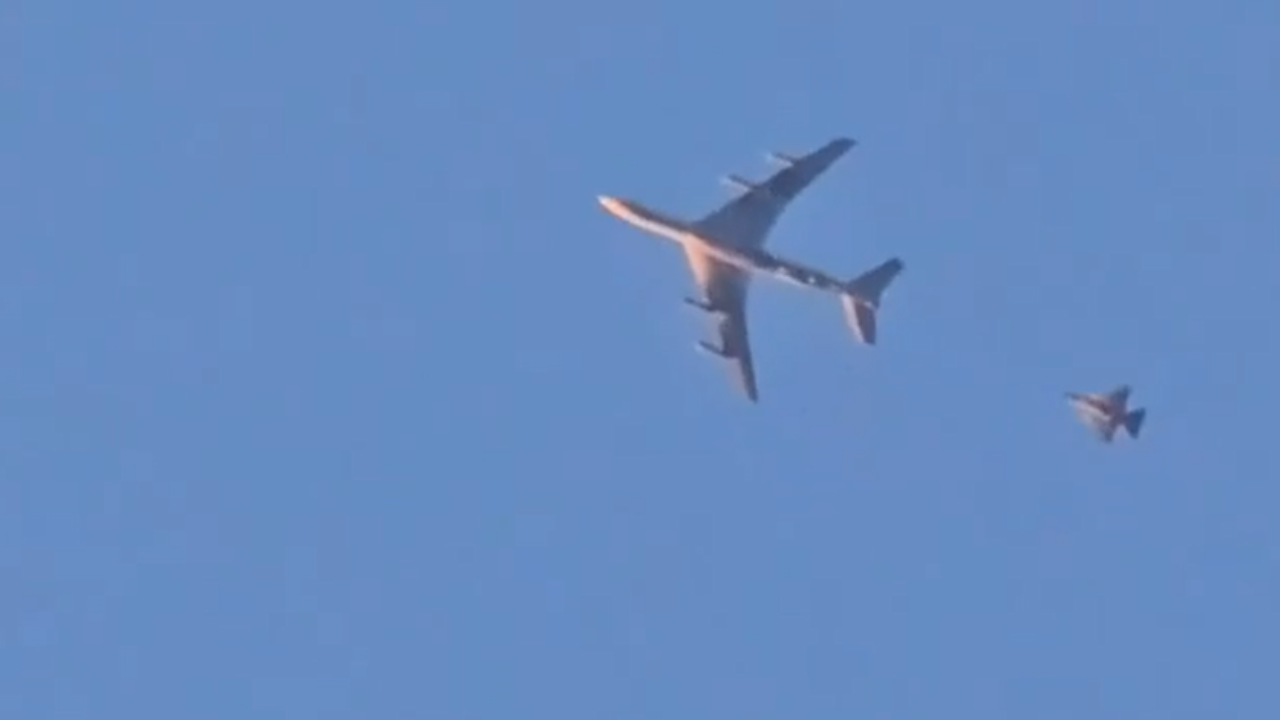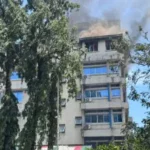In a rare and unprecedented policy shift, the government of Syria has authorized the use of its airspace by Israeli and allied military aircraft in response to increasing drone and missile attacks launched by Iran.
This dramatic move comes amid heightened regional instability and deepening fears of a broader Middle Eastern war.
The newly installed Syrian President—whose identity remains under tight scrutiny following a recent political reshuffle in Damascus—reportedly signed an executive directive permitting Israeli aircraft to intercept Iranian drones within Syrian territory, in coordination with the Syrian Arab Army. The move marks a substantial shift in Damascus’s traditional pro-Iranian alignment, reflecting the urgent need to address escalating regional threats.
Iran–Israel Conflict Brings Syria Into the Spotlight
The development stems from an ongoing Iran–Israel proxy conflict, which has seen Iranian forces step up aerial assaults using UAVs and ballistic missiles. Israeli Iron Dome and David’s Sling defense systems, bolstered by U.S. logistical support, have intercepted many of these projectiles—often while still airborne over Syrian territory.
Debris from those interceptions has fallen across southern Syrian provinces including Daraa, Quneitra, and Tartus, prompting safety concerns and flight suspensions. Syrian Civil Aviation temporarily grounded commercial flights until debris clearances could be confirmed.
Civilian Harm and Warnings
In Tartus, a woman sustained fatal burns after drone debris struck her house—a stark reminder of the human cost of regional militarization. Syrian emergency services have warned residents not to touch any metallic fragments or unexploded munitions. Raed al-Saleh, Syria’s Minister for Emergency and Disaster Response, cautioned citizens via state television, urging immediate reporting of debris to civil defense teams.
Strategic Shake-Up in the Middle East
By allowing Israeli jets—reportedly including F-35I Adir stealth fighters—to conduct cross-border operations with approval, Syria has effectively recalibrated its regional position. Analysts view the move as a critical boost for Israeli Air Force interception capability, giving Tel Aviv the advantage of early detection and strike options far from its borders.
Also Read; Netanyahu Appeals To Iranians Amid Rising Conflict
This operational freedom could prevent UAVs and missiles from reaching Israeli cities like Tel Aviv or Haifa, reducing risk to civilians and infrastructure.
Moreover, images verified by OSINT investigators appear to show aerial refueling operations of Israeli jets over Syria—evidence supporting claims of coordinated action within Syrian airspace.
Regional Fallout and Broader Repercussions
This policy shift by Damascus may impact Lebanon, Jordan, and even Iraq, all of which have imposed air traffic restrictions as precautionary measures. Ben Gurion Airport in Israel remains under intermittent lockdowns due to perceived risks of further attacks.
International organizations such as the United Nations, European Union, and Arab League have all issued calls for de-escalation and dialogue, expressing concern over Syria’s direct involvement in the air conflict.
Looking Ahead: Tactical or Transformational?
While Syrian officials have referred to the decree as temporary, security analysts believe this move could signal a broader, long-term strategic transformation in how regional aerial threats are handled. With the Middle East increasingly becoming a testing ground for drone warfare, coordination—however unlikely—between adversaries may become a necessity.
Observers are now monitoring:
- The frequency of Iranian drone launches,
- The status of Syria–Israel military communication,
- Civilian protection protocols in border areas.
In essence, Syria has moved from reluctant battleground to active strategic corridor in a rapidly shifting regional chessboard. Whether this marks the beginning of broader cooperation—or a short-term convenience born of desperation—remains to be seen. But for now, the skies above Syria are no longer just a battlefield—they’re a diplomatic barometer for an entire region on edge.







